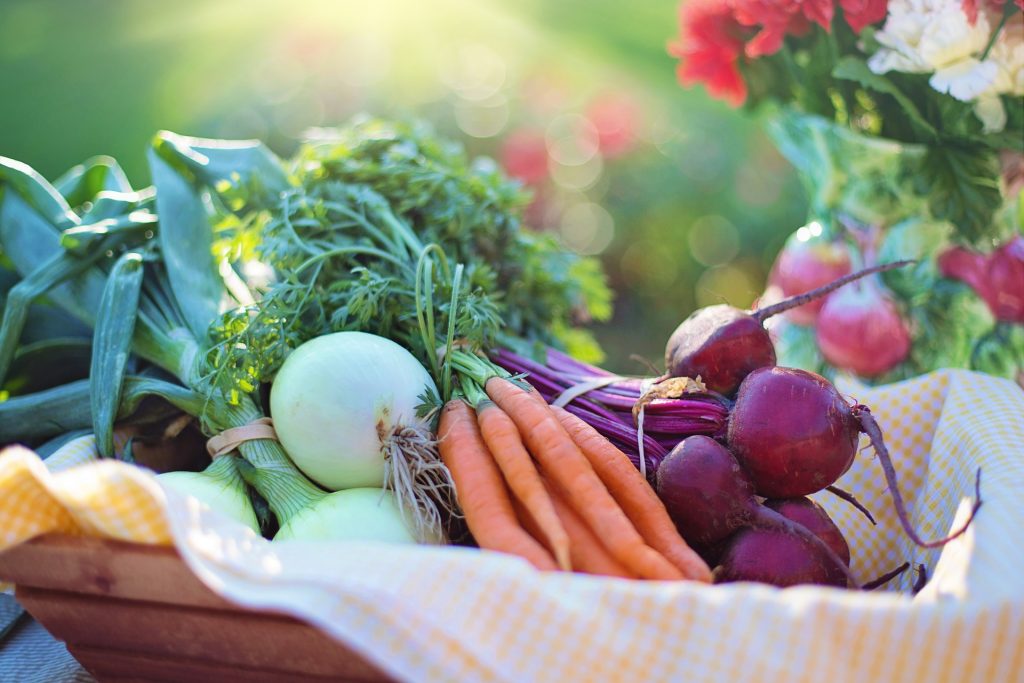More and more Filipinos seek to lead healthier and more sustainable lives. Folks approach this in many ways: going zero waste, eating clean, buying local and organic produce, etc. As research uncovers new health-related concerns, many people seek to go back to more natural methods of eating and taking care of our bodies. Many shift to eating organic foods and steer clear of GMOs and the like.
What is Organic Food?
Organic is huge right now, it can refer to anything from social media posts to food. Do you know what it means? In social media, it means content and its impact outside any paid promotion. How about organic food? Supermarkets and health food stores alike will have products on their shelves with the word boldly displayed on the packaging. These items are also more expensive than their regular counterparts.
Let’s talk organic. A plant-based food item is considered organic if it is produced by farmers without genetic modifications, synthetic pesticides, and petroleum- or sewage-based fertilizers. Organic livestock is raised with natural methods such as providing them clean habitats, allowing them to graze freely, feeding them organic and natural feed, and ensuring they’re free from hormones and GMOs.
It’s worth noting that “certified organic” is a fairly new thing in the Philippines. There are only two Organic Certifying Bodies in the country (OCCP-ICSI and NICERT). Their scope only covers aquaculture, crop and animal production and processing. Make sure you do your own research when shopping and ask a lot of questions about where the product comes from. All governing bodies here and abroad require that a certain set of guidelines be met in order to be called organic. Some countries are stricter with these certifications than others.
Why Go Organic?
Now that we know what organic food is, let’s discuss the reasons to go organic. If you’re asking “is organic food better?”, we are too. So we did a bit of research and here’s what we found.
Often, those who choose to buy and consume organic food say that they do so because organic food is healthier and is the better option. Of course, the standards for “healthy” vary from person to person. Because of the way they’re farmed and produced, organic goodies are exposed to less synthetic compounds and toxins. When consumed, the body exerts less energy in filtering the food and digests them more easily. Some studies also show that antioxidants are much higher in organically farmed food compared to their non-organic counterparts.
Another reason to choose organic is flavor. Because they aren’t exposed to harmful chemicals and are not genetically altered, organic produce is said to taste fresher and cleaner. Some even argue that they taste the way food is meant to taste. There are studies showing that naturally grown food tastes different. Many people report a marked difference in the flavor and prefer the taste of organic food.
In terms of quality, there are obvious differences between organic and non-organic crops. Non-organic plants will produce more and bigger crops. Science helped it along. More and bigger isn’t always better though. We’ll leave it up to you to decide on which is better.
The benefits of organic food extend beyond consumer experience. Organic farming practices are kinder and gentler on the environment too. The synthetic pesticides and fertilizers that don’t make it on your greens don’t make it into the soil and waterways too, preventing contamination. Commercial pesticide products also affect animals and plants other than the pests and weeds they’re intended for. Without them, the natural flora and fauna surrounding crops flourish and natural balance is maintained.
Many organic produce is also local. Buying them will not only give you tastier menu and ingredient options, but will also support industries in your neighborhood.
So, why not?
All the reasons for choosing organic food sound good, so why not go completely organic? Here are some points to consider.
- Produce tends to be smaller – because these non-genetically modified crops and produce only grow to the size that nature intended them to be they’re usually smaller than their regular counterparts. Many organic food advocates will argue that the better taste makes up for their smaller size.
- There’s less crop to go around – for the same reason stated above, naturally produced foods yield less. Some pests and weeds will impact a harvest’s numbers.
- They’re more expensive – just because organic farmers don’t spend on synthetic feed and enhancers doesn’t mean they spend less on their crop. It takes extra care to cultivate these crops the natural way. Also, because of smaller harvest sizes, these farmers need to increase prices on organic produce.
- Organic produce may be hard to find – if you sum up all the points we’ve just raised, it’s understandable why there’s less to go around. Big companies also farm the regular way to keep their own numbers up. You need to take your time when sourcing organic food.
Which way to go?
It’s all up to you and the lifestyle you lead. There’s a marked increase in the demand for organic products in the market and more and more stores carry organic goods on their shelves nowadays. It shouldn’t be too hard to find organic produce and see for yourself whether you like it better than your regular options. What’s the worst that could happen? You can decide if it’s all the same to you and revert to your old food staples. Or maybe you’ll find that organic is the way to go for you. Either way, eating good, nutritious, and tasty food can never be a bad thing.
Sources:
https://www.helpguide.org/articles/healthy-eating/organic-foods.htm
https://www.theguardian.com/environment/2014/jul/11/organic-food-more-antioxidants-study
https://www.sciencedirect.com/science/article/abs/pii/S0950329398000342
https://www.eostreorganics.co.uk/environmental-benefits-of-organic-food-production.html

